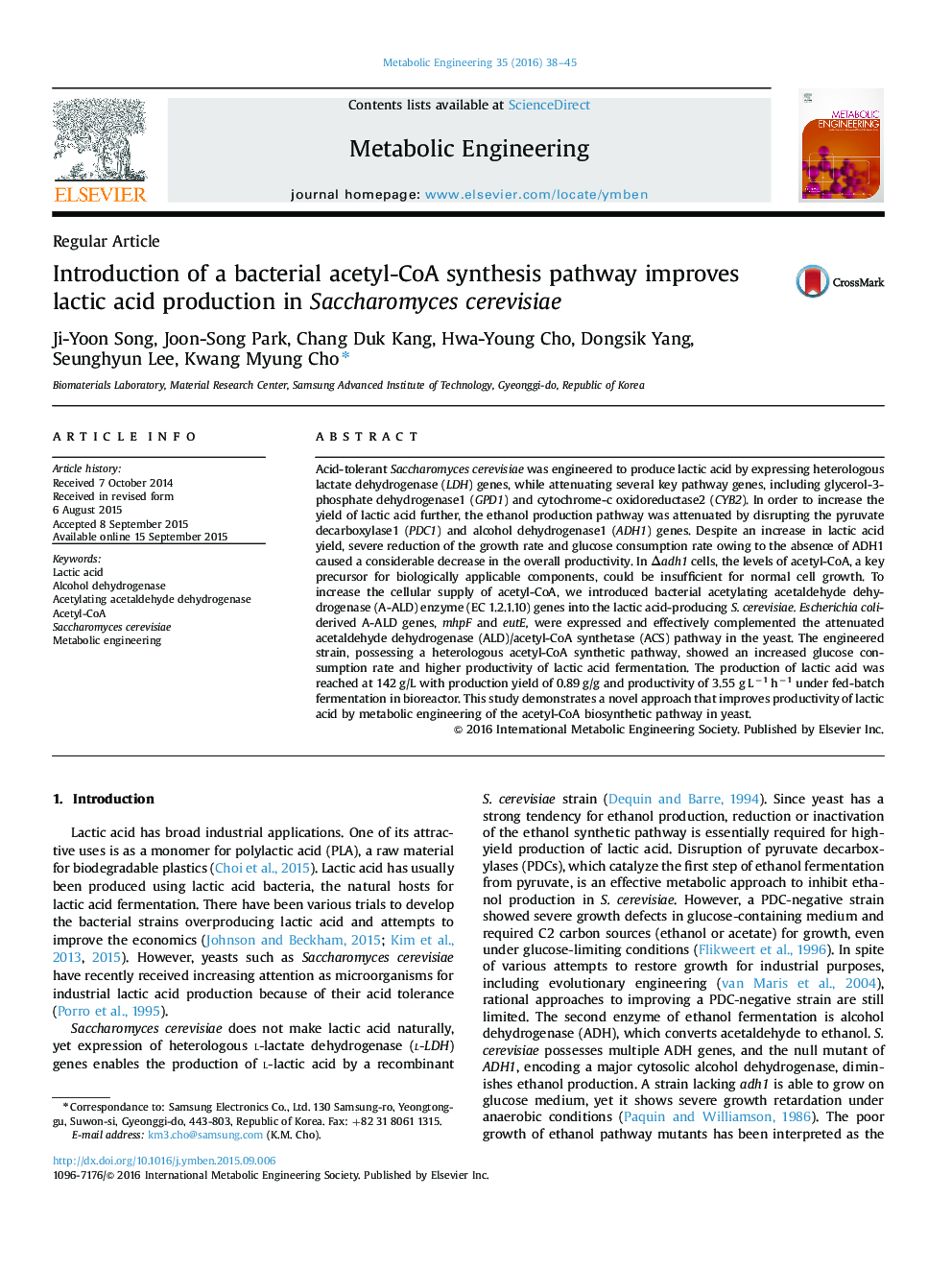| Article ID | Journal | Published Year | Pages | File Type |
|---|---|---|---|---|
| 31492 | Metabolic Engineering | 2016 | 8 Pages |
•Deletion of ADH1 increases yield but reduces titer of lactate production in yeast.•Expression of bacterial A-ALD increases growth and glucose consumption in Δadh1.•Acetyl-CoA pool is enhanced by expression of A-ALD in lactate producing yeast.•Alternative acetyl-CoA synthetic pathway improves lactate productivity in yeast.
Acid-tolerant Saccharomyces cerevisiae was engineered to produce lactic acid by expressing heterologous lactate dehydrogenase (LDH) genes, while attenuating several key pathway genes, including glycerol-3-phosphate dehydrogenase1 (GPD1) and cytochrome-c oxidoreductase2 (CYB2). In order to increase the yield of lactic acid further, the ethanol production pathway was attenuated by disrupting the pyruvate decarboxylase1 (PDC1) and alcohol dehydrogenase1 (ADH1) genes. Despite an increase in lactic acid yield, severe reduction of the growth rate and glucose consumption rate owing to the absence of ADH1 caused a considerable decrease in the overall productivity. In Δadh1 cells, the levels of acetyl-CoA, a key precursor for biologically applicable components, could be insufficient for normal cell growth. To increase the cellular supply of acetyl-CoA, we introduced bacterial acetylating acetaldehyde dehydrogenase (A-ALD) enzyme (EC 1.2.1.10) genes into the lactic acid-producing S. cerevisiae. Escherichia coli-derived A-ALD genes, mhpF and eutE, were expressed and effectively complemented the attenuated acetaldehyde dehydrogenase (ALD)/acetyl-CoA synthetase (ACS) pathway in the yeast. The engineered strain, possessing a heterologous acetyl-CoA synthetic pathway, showed an increased glucose consumption rate and higher productivity of lactic acid fermentation. The production of lactic acid was reached at 142 g/L with production yield of 0.89 g/g and productivity of 3.55 g L−1 h−1 under fed-batch fermentation in bioreactor. This study demonstrates a novel approach that improves productivity of lactic acid by metabolic engineering of the acetyl-CoA biosynthetic pathway in yeast.
